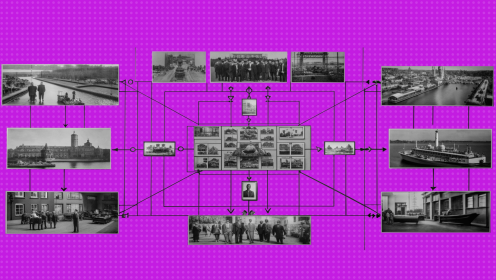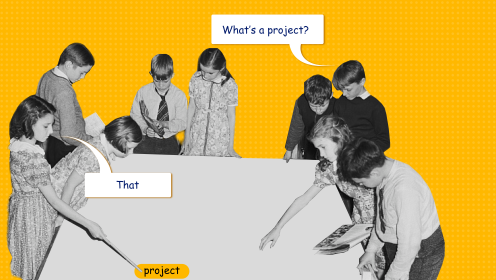When a meeting makes sense
Do you want to comment on the project? Better write in a chat or send everyone an email. Need ideas to build for a task or project? The meeting won't help — you need to post a small group of creatives. Is the topic of discussion very simple or doesn't have a clear timeline? It is better to wait for discussions, or move them to the same mail.
It is necessary to hold a meeting only if there is a rather complex and extensive topic on the agenda that cannot be delayed. And it is important enough that the time spent on the meeting is justified.
In other situations, there is no point in a meeting. For example, you can discuss the next tasks at a simple ten-minute meeting over morning coffee.
If you think that without a meeting, well, nothing at all, prepare yourself:
- Think about where and when to hold a meeting. This can be a meeting in the office, a video conference, and a meeting after work (if no one is against it, of course). The main thing — do not forget to inform all participants about the meeting.
- Define the topic of the meeting and prepare a list of questions you want to ask your audience. They will be able to push them to the right thoughts and the right words. To make sure that there are fewer "uh", "Ah" and other garbage, it is better to familiarize everyone with the questions in advance, so that everyone comes to the meeting with an understanding of the topic.
- If necessary, prepare visual materials. Even if you think you don't need presentations, documents, or printouts, it's probably easier for someone to Express an idea if they have a sheet and marker in their hands.
So that the meeting is not wasted and all participants are happy with the result, follow these simple tips.
State the purpose of the meeting
There is a chance that the topic of the meeting will be the same, but in fact, you need to discuss a much narrower issue. If you, as the organizer, first figure out what problem to discuss and solve, then the meeting will have less water and more to do.
For example, you planned to "understand what to do next in the project" at the meeting. This is very abstract and incomprehensible. It is better to formulate such a goal: "Determine which employee is at what stage, what is his next goal, and what he needs to complete the work." The goal should be as specific, important, urgent and clear to all participants of the meeting as possible.
Set the agenda and think through the course of the meeting
If you know the purpose of the meeting, why you are going at all, you will be able to formulate the main topics of discussion. Not personal questions for each participant in the meeting, but problems that need to be resolved through the meeting. Without a discussion plan, there will be a lot of conversations, but it is unlikely that something will be resolved. From such meetings, everyone comes out seemingly tired of hard work, but with absolutely zero results.
Write down in order all the problems that need urgent discussion and determine what result you need to achieve on what issue.
Set a time limit
Both for the entire meeting and for each question from the plan. If several participants will speak during the meeting, you can even limit the time for speaking. This will be very useful for several reasons:
- —everyone should have time to speak out;
- —at the end of the meeting, you can not rush and decide something in a hurry;
- —the meeting should not be too long:
- —by the end of a long meeting, everyone gets tired, loses concentration, and becomes less efficient;
- —the time of each specialist costs money - the more everyone sits idle, the more serious the company's losses.
Define the roles of participants
Make a list of those who need to attend the meeting — so there will be no extra people who can divert the discussion from the desired course. When you decide on the participants, decide who will be responsible for what — what questions each participant will be able to solve.
And avoid too many participants so that everyone has time to say everything.
Decide what to do next
After the meeting, you and the entire team should clearly understand what you should do next. If you have resolved organizational issues, but have not formulated clear instructions for work, you will most likely have to meet again, this time with a narrower team. And if everything is clear, and the results of the meeting can be considered super-successful — it's time to get to work!
In General, it is not so difficult to hold productive meetings. But there's always a chance that things don't go according to plan.
What could go wrong
So, you set a goal, thought out a plan, gathered the right people, each of whom prepared - why then could the meeting go wrong? Here are a few reasons:
- You don't hold regular meetings. Practice is very important. Without it, participants will have no experience of public speaking and will not be able to connect two words. The productivity of rare meetings is minimal.
- You know what you want to discuss, but you haven't thought through your speech. You don't need to read the paper, but you should know what you want to say. Otherwise, it is highly likely that you will distort the information, explain it for a long time, and cause misunderstanding among colleagues.
- The Manager always speaks first. It is not always correct, because after the head of the rank and file employees to voice their opinion will not be. Although, there are bold exceptions.
- The discussion always boils down to an emotional discussion of problems in the company, salary or behavior of one of the employees. Even if it really matters now, all this should be discussed as correctly and impartially as possible.
- Solutions from previous meetings are not implemented. In this case, it is unlikely that any of the colleagues will take the next working meetings seriously.
All this can be avoided if you carefully prepare for the meeting and stop conversations that are not on the topic. If the preparation is successful, then the entire team will leave the meeting with new goals and ready to work. Try to prepare all the materials and questions for the next meeting and see how productive it will be.


















